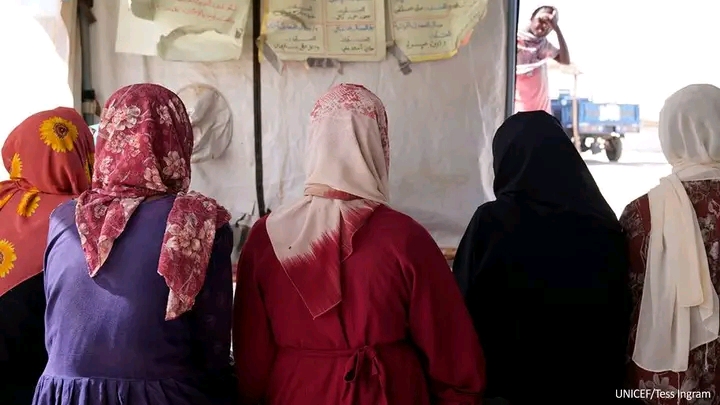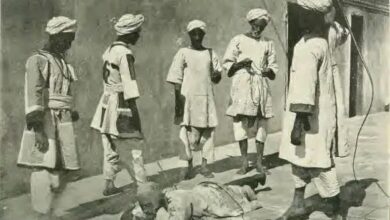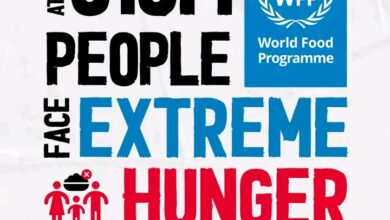
By Malak Bella
Khartoum, July 19, 2025 (Informedia Network)
Since the outbreak of war in Sudan on April 15, 2023, women from all backgrounds have faced increasing challenges and multiple violations, most notably the widespread use of organized hate speech. This has become a dangerous tool used to discredit women and marginalize their roles in both public and digital spaces.
In the midst of the conflict, online campaigns have turned into lethal weapons driven by organized groups operating in closed rooms to spread disinformation and incitement, particularly targeting women activists and those active in politics, media, and civil society. These women are subjected to systematic defamation campaigns and deprived of their full citizenship rights simply because they opposed the war or attempted to contribute to peacebuilding.
Defamation and Character Assassination
Najoud, a human rights defender, says that hate speech directed at women has significantly complicated the Sudanese landscape. She explains that many female politicians, feminists, and journalists have suffered character assassination on social media in campaigns targeting their personal and professional reputations, pushing many of them to withdraw from the public sphere under immense psychological pressure.
Discrimination and Exclusion
Mia Abdel Qader, a journalist and human rights advocate, emphasizes that female activists and party members face double violations. She adds: “Some women were subjected to discrimination and exclusion solely because of their political affiliation or media work, with some even being denied passport renewals, despite this being a legal right for all.”
Activist Mahasen Atem notes that the sharp polarization and mobilization against political opponents, especially women, have fueled the spread of hate speech, further marginalizing women politically and socially and undermining their sense of security, negatively affecting their mental health and personal safety.
Mahasen calls for raising community awareness about the dangers of hate speech, providing legal support for affected women, strengthening social solidarity, and enhancing the role of the media in promoting tolerance, respect, and equality.
Najoud believes the solution lies in building a counter-narrative that restores women’s dignity and role in peacebuilding and society, establishing community support networks, and adopting strict legislation against hate speech and digital violence.
War Fuels Hate Speech
Mia Abdel Qader defines hate speech as “any form of communication that uses derogatory or discriminatory language toward an individual or group based on identity, gender, race, or political affiliation, including incitement to violence and social stigmatization.”
She concludes: “War fuels hate speech, and the state itself sometimes perpetuates it through unjust laws. We must stand together, women and men alike, to combat this discourse before it becomes a weapon that threatens our shared existence.”
Activists and advocates Reem Mohamed Hussein and Taysir Saleh agree that hate speech has long been prevalent in Sudan, but since the outbreak of the April 15 war, it has risen sharply to alarming levels. They note that it has reached the point of criminalizing women, barring them from political and public engagement, fracturing women’s solidarity, and causing divisions—pushing some to join warring factions, while others remain neutral, which poses a major threat. They stress that the solution lies in curbing hate speech through messages conveyed by art, theater, and drama, as well as through a proactive media role in countering hate speech against women.
Mahasen Atem concludes by stating that the war has had a profound impact on women, both physically and psychologically. Women have become increasingly vulnerable to physical and sexual violence, rape, and psychological harm, leading to depression, anxiety, and fear.
The war has also reshaped women’s roles in society, with many now responsible for their families after losing husbands or fathers, adding to their burdens and making their lives more difficult.
After the war, women will be in urgent need of psychological and health support to overcome the traumas they endured. This support could include therapy, healthcare, and social assistance.
Mahasen adds: “We must rebuild society and rehabilitate women so that they can return to active participation in social and economic life.”
The Sudanese Media Forum and its member institutions publish this report, prepared by Informedia Network, to warn of the dangers of growing hate speech and discrimination against women. The voices featured stress the need to curb the digital violence accompanying the war and highlight how its consequences threaten the future of society.




